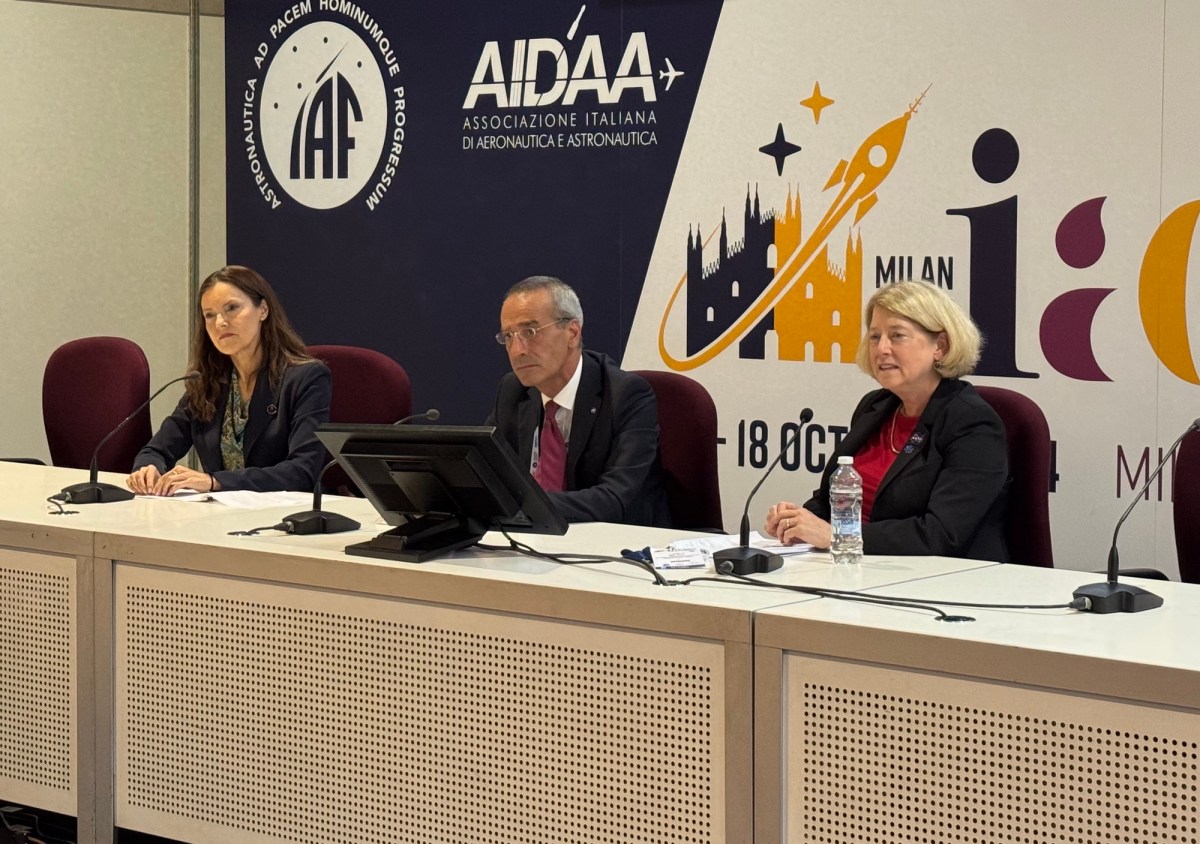MILAN — Countries that have signed the Artemis Accords say that even as their numbers continue to grow, they need to redouble their efforts to encourage more nations to join.
Estonia became the 45th country to sign the Accords in an event here before the start of the International Astronautical Congress (IAC), NASA announced Oct. 13. That signing took place almost exactly four years after the United States and seven other nations became the first to sign the Accords.
“We are more than interested to share our knowledge with the global space community to make future collaboration in space exploration a success for humankind,” Erkki Keldo, Estonia’s minister of economy and industry, said in a statement. “I am sure that joining the Artemis Accords will open attractive opportunities to Estonian enterprises too, to share their valuable knowledge and competences.”
The IAC also hosted a meeting of Artemis Accords signatories to discuss implementation of the Accords, which outline best practices for safe and sustainable space exploration, building upon the Outer Space Treaty and other international agreements. Those discussions, space agency officials said Oct. 14, included work on capacity building, technical issues regarding lunar operations and sharing of scientific data.
“We’re all facing a breadth and depth of space missions, which means that we urgently need to agree on the rules of conduct as humanity goes forward into the cosmos,” said Lisa Campbell, president of the Canadian Space Agency, at an Oct. 14 briefing after the Artemis Accords briefing. “It’s through implementation of the principles in the Accords, we believe, that will positively impact the safety and sustainability of deep space exploration.”
Besides working on those technical and policy issues, countries say they are looking to overcome obstacles that have kept more countries from signing the Accords, which include a lack of awareness of the Accords and their benefits.
“Some of these countries haven’t yet signed the Artemis Accords because they do not fully understand the reasons to be inside it,” said Teodoro Valente, president of the Italian space agency ASI. “This is one of our duties, one of our tasks, to let them know what does it mean, what are the advantages.”
“It’s about not being sure what you’re signing up to,” said NASA Deputy Administrator Pam Melroy. “That’s on us.”
Campbell said one issue that came up during the meeting of Artemis Accords signatories is the need to build up technical and policy expertise in emerging space countries so they can contribute to discussions on topics to the Accords. “Hopefully, that will bring out issues for others who haven’t joined, because there’s a reluctance or they’re concerned that established space countries are setting these rules and they don’t see themselves.”
Countries who are members of the Accords said they are working to reach out to those who have not yet joined. Melroy said that Enrico Palermo, head of the Australian Space agency, had made outreach in the Asia-Pacific region a priority, as had Japan and South Korea. Valente said his agency was working with African nations, noting the strong relationship ASI has with countries like Egypt and Kenya.
“The approach we are following is an approach where we try to understand their needs, trying to help them so they can solve their needs in cooperative programs,” he said. “We think this approach is a valuable one that can help also the Artemis community to better inform them about the aims of the Artemis Accords and to positively push them to sign the Accords.”
The briefing also raised the topic of China and the Accords. China is not a signatory, but in a plenary session earlier at the IAC, Li Guoping, chief engineer of then China National Space Administration, echoed many of the principles of the document.
“China is free to sign the Accords any time they want to,” Melroy said.
